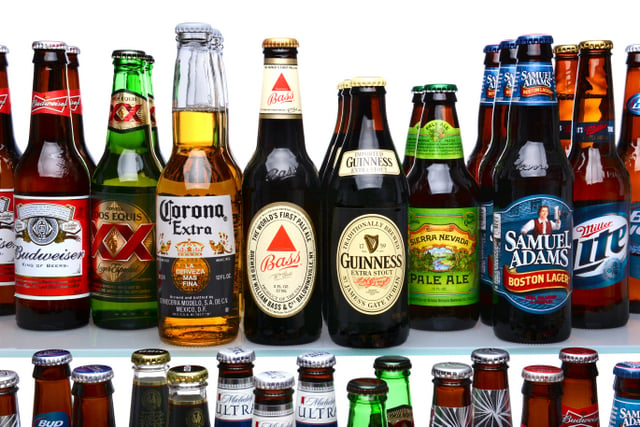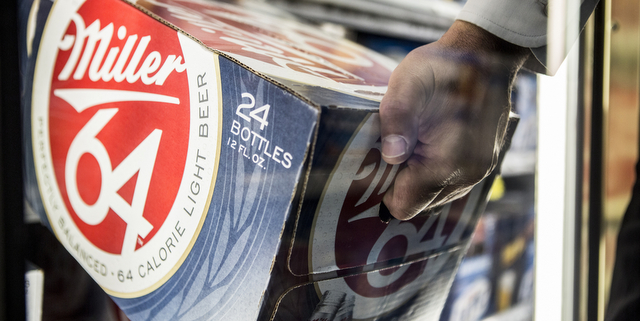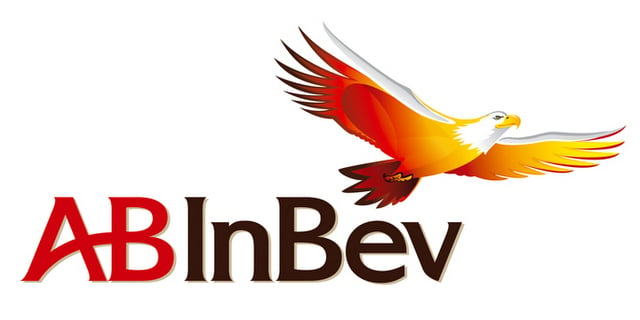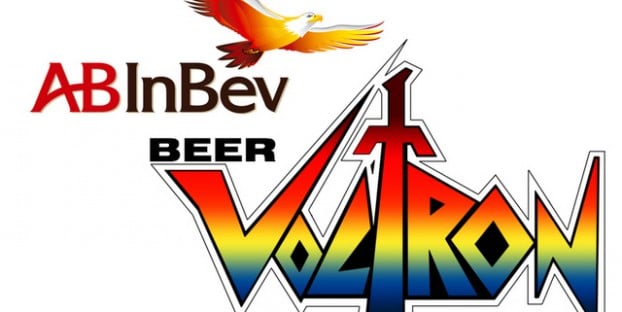
Limitations of the MillerCoors joint venture divesture
Many in the industry also have cast doubt on ABI’s assertions that the proposed sale of SABMiller’s 58 percent stake in the MillerCoors joint venture would alleviate any competitive problems. Recent studies have shown that mergers often fail to deliver true consumer benefits, and the Modelo deal underscored the limitations even of judicial intervention to reach a reasonable remedy that included vertical restraints. The law requires that any merger remedy “fully restore competition” in order to permit an otherwise anticompetitive merger to go forward. A remedy must be simple to administer and prevent any future anticompetitive conduct.
Several reasons have been raised explaining why the divestiture of the joint venture by itself may fail to serve as an effective remedy.
1. The new Molson Coors’ potential weakness as a competitor
It has been suggested that MillerCoors may be a less effective U.S. competitor when owned by Molson Coors, as the smaller second-largest brewer in the U.S. may be at a significant disadvantage in areas such as marketing, distribution, cost of goods produced and other scale-related business issues.
SABMiller currently is a major force as part of an international system that provides substantial economies of scale and a structure fostering long-term investment and innovation. The combined ABI-SABMiller entity would control 58 percent of the global profit pool, Molson Coors would have only 2.9 percent. The new number one brewer would be 20 times more profitable than Molson Coors, which will be paying off debt from a few markets. Additionally, important details about the transaction between ABI and Molson Coors remain unknown with regard to the specific beers imported into the U.S. by MillerCoors, such as the identity of the brands, country of production and how independent production will be maintained in the future, as was required in the ABI-Modelo merger.
2. Concerns to independent distribution
In addition to the competitive threats already discussed to independent distribution on the part of an even larger ABI, the industry will need assurance that Molson Coors will not replicate ABI’s actions to compromise distributor independence either through vertical integration (brewery ownership of distribution) or programs that would restrict independent distributors from carrying the beers of other brewers.
3. Lack of protection for innovation
Independent distribution has been vital to the explosion of innovation in the market. With 4,000 breweries in the U.S. and more opening on a daily basis, a single entity in the market with significantly disproportionate power may stifle further growth and innovation in a dynamic and robust U.S. beer industry.
4. Lack of protection of consumer choice and price
Academic studies have reported that the past beer mergers have resulted in higher prices to the consumer. More power at the top levels of the beer industry heightens this concern. Due to its increased global market power, critics of the merger have charged that ABI will be in an even more dominant position to continue to increase prices and stifle choice. Molson Coors could follow in the wake of any price increase instituted by ABI.
5. Failure to address commodity access and cost
The proposed divestiture in and of itself will not address the concerns that ABI’s increased global market power will allow it to control access to commodities and products needed in the U.S. beer market.
What should Congress and the Department of Justice do?
For reasons that have been stated above, regulators and policymakers should ensure that the American market renaissance — and in particular, the independent distribution system that enabled it — is not adversely affected by an increase in global market power created by a combination of the two largest brewers.
To achieve that goal, we encourage this Subcommittee and the full Committee to conduct a thoughtful and careful review of the proposed transactions, with the objectives of preventing anticompetitive conduct in the beer market and providing insight and information to the Department of Justice. Likewise, the DOJ should conduct a thorough document review, including making available those documents and materials that have not yet been made available to the public.
Specifically, the Department of Justice should consider the following:
1. Restrictions on termination of beer distributors by ABI, Molson Coors, MillerCoors Joint Venture or NEWCO (successor entity)
With the number of breweries in America reaching historic levels, not only is the need for strong, independent distributors of scale greater than ever, but so are the economic incentives to make it difficult for new entrants to access the open distribution system. DOJ should seek to ensure that the successful American system of open and independent distribution is not undermined by efforts on the part of ABI, Molson Coors, or their successor entities to use these proposed transactions to reshuffle or eliminate distributors. The parties have asserted that this merger would have no effect on the American marketplace. Ensuring that the parties cannot utilize this global transaction to make American distribution changes as a statement under oath, as part of a consent decree or final order would provide additional stability in the marketplace.
2. Vertical restraints on ABI-owned distribution and retail expansion
The Department of Justice has acknowledged the importance of an independent distribution system to a robust beer marketplace, and already is investigating whether ABI’s increasingly aggressive efforts to acquire distribution operations is being implemented to foreclose their competitors’ distribution options and limit their access to market. Having identified concerns with ABI-owned distribution in the Grupo Modelo/Constellation transaction, the DOJ should consider whether various restraints on vertical integration are needed to support an open and independent distribution system including:
- Limitation of Ownership of ABI Distribution Assets
ABI has recently indicated a willingness to sell some assets, including Peroni and Grolsch, to satisfy concerns in the European Union. In a similar fashion, exiting ownership of distribution should be considered as a remedy in the U.S. Limiting ownership of distributor operations by ABI could help maintain access to market as well as scale for other brewers while promoting competition for all market participants.
The DOJ put provisions into the ABI-Modelo order to require more oversight and notice for ABI expansion of distribution via a lower Hart-Scott-Rodino filing threshold. The DOJ should consider going further and preventing further distributor purchases by ABI.
- Prevention of expansion into retail
ABI’s recent purchases of craft breweries have included retail privileges in the form of taprooms, brewpubs and tasting rooms. As a result the power of ABI reaches into greater levels of market penetration when the consumer facing aspect of beer sales is also controlled by the ABI.
3. Prevention of exclusivity mandates
The proposed transactions represent an opportunity for DOJ and Congress to further consider the effect of exclusivity mandates on the marketplace and consumers and whether their use by a dominant competitor should be allowed to derail the goals of the other breweries and the system that has effectively served the consumer, the marketplace, brewers large and small, importers, distributors and retailers.
4. Prohibiting interference in distributors’ sales of competing brands
The Justice Department should review business practices that penalize independent distributors from carrying different beer companies’ beer and thereby threaten their role in a healthy beer marketplace.
5. Disclosure of all aspects of the proposed acquisition, including a potential divestiture of the MillerCoors joint venture
Important questions remain regarding the future of brands, not yet revealed or identified, that are currently sold by distributors in the U.S. For example, Exhibit 3 of the agreement between Molson Coors and ABI has been redacted. Policymakers, regulators and the public should know the specific impact of the proposed deal on all beer brands that will be affected.

Conclusion
Any time the number one and number two global market leaders in any industry combine, it is incumbent on policymakers to ask questions and seek assurances for adequate protections for the marketplace and consumers. Consumer advocates, craft breweries, independent beer distributors, retailers and others have expressed concern that ABI’s proposed acquisition of SABMiller could increase ABI’s leverage on the American beer industry. Additionally, questions exist about Molson Coors’ plans for distribution in the U.S. and whether ABI or Molson Coors could compromise competition by reducing access to market for other brewers and importers, controlling more distribution, and impacting consumers who may have less choice and pay higher prices as a result of this combination.
Congress and the Department of Justice are encouraged to consider various vertical restraints, such as a requirement that ABI sell some or all of the ABI-owned distribution operations; prohibitions on additional ownership of distribution; and a prohibition against interference with an independent distributor’s efforts to sell competing bands.
Maintaining the strength and integrity of the existing open and independent system of beer distribution — that provides access to market for brewers large and small; generates enormous consumer choice; balances the cost to consumers; and generates robust marketplace competition — should be the priority to ensure that America’s golden age of beer continues to generate excitement across the country.
On behalf of the nation’s 133,000 beer distribution employees, thank you for your interest in the role of independent beer distributors and for your efforts to examine the potential effects these historic transactions could have on brewers, distributors, the marketplace and the consumer.
[1] http://www.businessinsider.com/sabmiller-ab-inbev-would-dominate-the-beer-market-2015-9
[2] http://www.justice.gov/atr/case-document/file/486551/download
[3] Alcohol is regulated by the states under the 21st Amendment. As a result of this regulation most states have set up a three tier distribution of beer where the brewery sells to a local beer distributors who sells it to local, state licensed alcohol retailers. The United States Supreme Court has repeatedly upheld this system: “States may also assume direct control of liquor distribution through state-run outlets or funnel sales through the three-tier system. We have previously recognized that the three-tier system itself is unquestionably legitimate.” Granholm v. Heald, 544 U.S. 460 (2005)
[4] http://www.brewsnews.com.au/2015/11/malts-time-to-shine-says-brewer/





RT @BlackburnBrew: NBWA testifies for Congress on AB InBev/SABMiller merger https://t.co/jQ7UDknFlj via @craftbrewingbiz
NBWA testifies for Congress on AB InBev/SABMiller merger https://t.co/jQ7UDknFlj via @craftbrewingbiz
National Beer Wholesalers Association addresses the AB InBev/SABMiller merger with Congress https://t.co/9GfBXh7pdx https://t.co/E6RUpc9KS2
Earnest Harbin liked this on Facebook.
Leo Longoria liked this on Facebook.
NBWA testifies for Congress on AB InBev/SABMiller merger https://t.co/7nmypir9rR
Charlie Reeves liked this on Facebook.
Grist Mills liked this on Facebook.
Scott Strain liked this on Facebook.
Andrew Johnson liked this on Facebook.
Lou Harper liked this on Facebook.
ArcWest Architects liked this on Facebook.
Interesting insight https://t.co/OnF733Ejw2
Would it be possible to boycott the big boys in favor of better local brews?
National #Beer Wholesalers Association addresses the many perils of an AB InBev/SABMiller merger with #Congress https://t.co/xHViRWGHCz
this CANNOT happen
William Lane liked this on Facebook.
Jessica Harris liked this on Facebook.
Ohm Phansuea liked this on Facebook.
Jonathan Polanco liked this on Facebook.
Bill Hockett liked this on Facebook.
Serge Lubomudrov liked this on Facebook.
Sean Bjornstrom liked this on Facebook.
Wilson Bame liked this on Facebook.
Ricky Brown liked this on Facebook.
John Wanner liked this on Facebook.
Luke Gordon liked this on Facebook.
“National Beer Wholesalers Association addresses the many perils of an AB InBev/SABMiller merger with Congress” https://t.co/ni5F5KBuTx
Karli Olsen liked this on Facebook.
Katie R. Stouffer liked this on Facebook.
The Girl & The Vine: HOPS liked this on Facebook.
NBWA testifies for Congress on AB InBev/SABMiller merger https://t.co/IC6ZMLMDtp via @craftbrewingbiz
NBWA testifies for Congress on AB InBev/SABMiller merger https://t.co/VSUL7q4SU6
Jason Weihbrecht liked this on Facebook.
#CraftBeer #CraftBrewing #Beer #BeerBiz National Beer Wholesalers Association addresses the many perils of an A… https://t.co/yUgcTzRxQD
John Chadwick Eby liked this on Facebook.